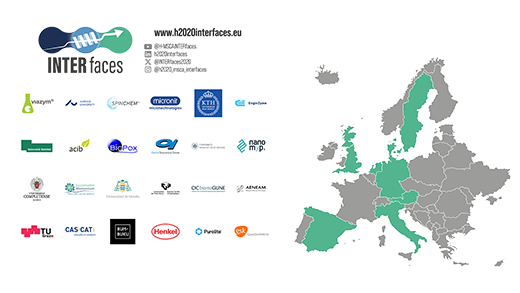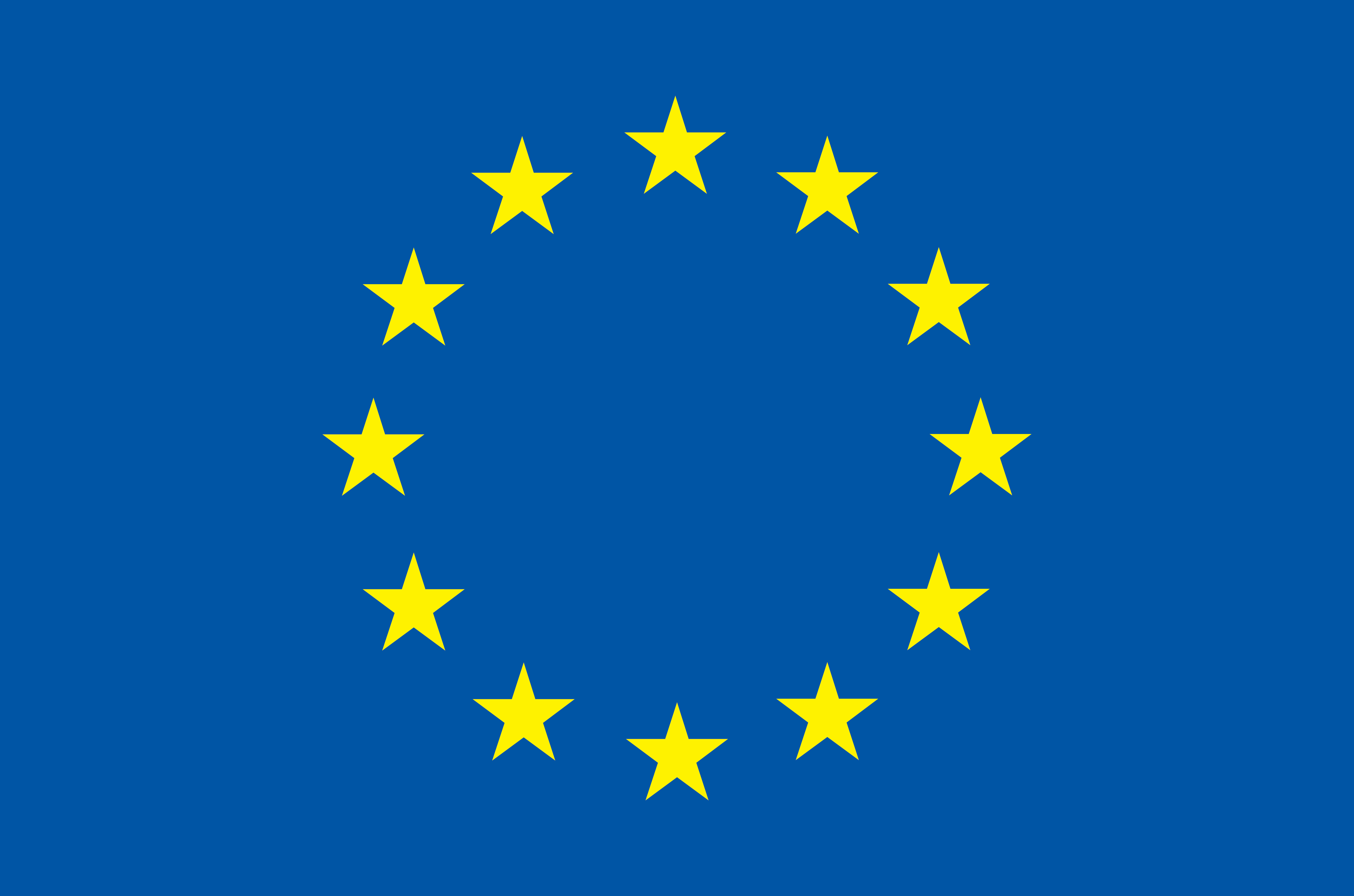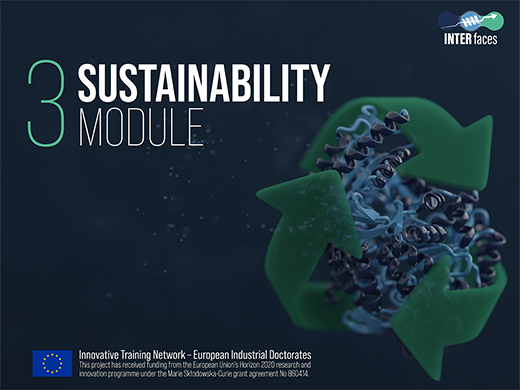Maßgeschneiderte Materialien und Enzyme für industrielle Prozesse – Nachhaltigkeit und industrielle Anwendungen
Kursstart: 1. Mai 2024
Maßgeschneiderte Materialien und Enzyme für industrielle Prozesse – Nachhaltigkeit und industrielle Anwendungen
INTERfaces-Team
Wissenschaftliche Einordnung:
Kursstart: 1. Mai 2024
Maßgeschneiderte Materialien und Enzyme für industrielle Prozesse – Nachhaltigkeit und industrielle Anwendungen
INTERfaces-Team
-
Umfang: 6 Lektionen
-
Aufwand: 1 Stunde/Woche
-
Teilnehmende aktuell: 138
-
Lizenz: CC BY-SA 4.0
-
Kursstart: 1. Mai 2024
-
Kursende: 27. November 2025
-
Status aktuell: Laufender Kurs
-
Verfügbare Sprachen:
Details zum Kurs
Allgemeine Informationen zum Kurs
Der iMooX-Kurs "Maßgeschneiderte Materialien und Enzyme für industrielle Prozesse – Nachhaltigkeit und industrielle Anwendungen" konzentriert sich auf die Umsetzung der Biokatalyse im industriellen Maßstab und zeigt auf, wie enzymatische Lösungen gleichzeitig umweltfreundlich und industriell relevant werden können. Der Kurs umfasst zwei Blöcke. Der erste Block umfasst vier Lektionen, welche die Vermittlung von Grundlagen der Nachhaltigkeit beinhalten. Es werden Umweltmetriken diskutiert sowie die Nutzung biogener Ressourcen und einige Konzepte im Zusammenhang mit der Bioökonomie erklärt. Zusätzlich wird in den ersten beiden Lektionen gezeigt, wie die Umweltauswirkungen biokatalytischer Reaktionen mit aussagekräftigen und einfach zu implementierenden Metriken gemessen werden können sowie, wie eine umfassendere Analyse durch die Implementierung von Life-Cycle-Assessments (LCA)-Strategien durchgeführt werden kann. Die anderen beiden Lektionen behandeln den Paradigmenwechsel von erdölbasierten Chemikalien zu erneuerbaren Rohstoffen. Der zweite Block, bestehend aus zwei Lektionen, präsentiert verschiedene Beispiele aus der biokatalytischen Industrie. Hierbei wird jeweils herausgearbeitet, warum Enzyme aufgrund ihrer Selektivität, milden Reaktionsbedingungen und ihrer Vielseitigkeit in verschiedenen Reaktionsmedien von Vorteil sind. Insgesamt wird eine umfassende Perspektive auf die Möglichkeiten der Biokatalyse im industriellen Maßstab vermittelt. Die Lektionen werden durch Interviews mit jungen Wissenschaftler:innen und Führungskräften der industriellen Biotechnologie sowie durch experimentelle Videos ergänzt. Um eine Lektion erfolgreich abzuschließen, muss nach jeder Lektion ein Quiz ausgefüllt und bestanden werden. Der Kurs richtet sich nicht nur an BSc- und MSc- Studierende, sondern wurde auch für Industriechemiker:innen konzipiert, die daran interessiert sind, Enzyme zur Synthese von Chemikalien für unseren täglichen Gebrauch einzusetzen.
Obwohl dieser Kurs eigenständig absolviert werden kann, wurde er als Teil einer drei MOOC-Reihe „Tailored Materials and Enzymes for Industrial Processes” (Maßgeschneiderte Materialien und Enzyme für industrielle Prozesse) konzipiert:
“Tailored Materials and Enzymes for Industrial Processes – Basic Module”
“Tailored Materials and Enzymes for Industrial Processes – Advanced Module”
“Tailored Materials and Enzymes for Industrial Processes – Sustainability Module”
Für ein optimales Lernergebnis empfehlen wir, alle drei MOOCs in der vorgesehenen Reihenfolge zu besuchen.

Dieser Kurs wurde im Rahmen des Projekts INTERfaces – Heterogeneous biocatalysis reaction cascades training network (Trainingnetzwerk für Heterogene Biokatalyse-Reaktionskaskaden) (H2020 Marie Skłodowska-Curie Actions (MSCA) Innovative Training Networks (ITN) – European Industrial Doctorates (EID)) entwickelt und durchgeführt.
Dieses Projekt wurde aus dem Forschungs- und Innovationsprogramm Horizon 2020 der Europäischen Union im Rahmen der Marie-Skłodowska-Curie-Fördervereinbarung Nr. 860414 gefördert.

Kursinhalt
- Thema 1: Green Chemistry-Metriken für biokatalytische Reaktionen und umfassendere Life-Cycle-Assessment (LCA)-Strategien.
- Thema 2: Bioökonomie, biogene Ressourcen und Paradigmenwechsel
- Thema 3: Industrielle Biokatalyse. Fallstudien und Motivation für den Einsatz von Enzymen.
Lernziele
Nach Abschluss des MOOC können die Teilnehmer:
Verstehen, warum die Messung der Nachhaltigkeit einer katalytischen Reaktion heutzutage ein wichtiges Thema ist.
Erläutern, wie die Umweltfreundlichkeit von (bio)katalytischen Reaktionen quantitativ bewertet werden kann und wie Prozessbedingungen verbessert werden können, um mehr umweltfreundlichere Synthesen zu schaffen.
Die Grenzen verschiedener Prozesse zur Analyse von Umweltmetriken verstehen und wie Lebenszyklusbewertungen implementiert werden können, um Reaktionen ganzheitlich abzudecken.
Erklären, wie die zirkuläre Bioökonomie und biobasierte Materialien im industriellen Maßstab zur Anwendung kommen können.
Erläutern, wie Enzyme auf industrieller Ebene eingesetzt werden können, und ihr erlerntes Wissen anhand von Beispielen von Reaktoren und Fallstudien anwenden können. Die Fallstudien decken den Themenbereich vom Gen- bis zum Prozessdesign ab.
Vorkenntnisse
Grundkenntnisse in Biochemie, organischer Chemie und chemischer Reaktionstechnik werden erwartet. Abschluss der MOOCs “Maßgeschneiderte Materialien und Enzyme für industrielle Prozesse - Basismodul” und “Maßgeschneiderte Materialien und Enzyme für industrielle Prozesse - erweitertes Modul” wird empfohlen.
Kursablauf
Der MOOC ist in sechs Einheiten unterteilt. Jede Woche wird eine Einheit veröffentlicht. Jede Einheit enthält mindestens ein Vorlesungsvideo, begleitende Transkripte, manchmal Bonusmaterial in Form eines experimentellen Videos oder eines Interviews mit einem Vertreter einer Firma. Abschließend ist Quiz zur Überprüfung der Lernziele, sowie zur Selbsteinschätzung vorgesehen.
Synchrone Phasen sind hier nicht vorgesehen, sodass die Lernenden die Inhalte in ihrem eigenen Tempo bearbeiten können.
Zertifikat
Für die aktive Teilnahme am Kurs erfolgt bei Abschluss die Ausstellung eines automatisierten Zertifikats, welches Ihren Benutzernamen, den Kursnamen und die abgeschlossenen Lektionen beinhalten. Es wird darauf hingewiesen, dass es sich nur um eine Bestätigung handelt, die aussagt, dass die Benutzer:innen zumindest 75% der gestellten Selbstüberprüfungsfragen richtig beantwortet haben.
Lizenz
Dieses Werk ist lizenziert unter https://creativecommons.org/licenses/by-sa/4.0/deed.en
Kursleitung

INTERfaces-Team
INTERfaces – Heterogeneous biocatalysis reaction cascades training network (Trainingnetzwerk für Heterogene Biokatalyse-Reaktionskaskaden) (H2020 Marie Skłodowska-Curie Actions (MSCA) Innovative Training Networks (ITN) – European Industrial Doctorates (EID))
12 nicht-akademische Partner, von High-Tech-KMU bis hin zu großen produzierenden Unternehmen, und 11 akademische Institutionen bieten ein intersektorales und interdisziplinäres Umfeld, um 14 Doktoranden mit hervorragenden Beschäftigungsfähigkeitsprofilen für den europäischen Biotech-Sektor auszustatten. Gemeinsam erarbeiten sie diesen MOOC, um das Wissen auf dem Gebiet der Biokatalyse zu erweitern und den Studierenden die Möglichkeit zu geben, von einem hervorragenden Gremium aus Lehrkräften unterschiedlicher Fakultäten und mit unterschiedlichem Hintergrund zu lernen.
Liste der Lehrenden:
Dr. Pablo Domínguez de María (Sustainable Momentum, SL), Prof. Selin Kara (Universität Aarhus) und Prof. Lucia Gardossi (Universität Triest).
Partner:innen

Technische Universität Graz


